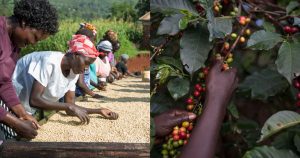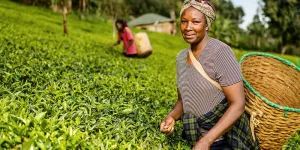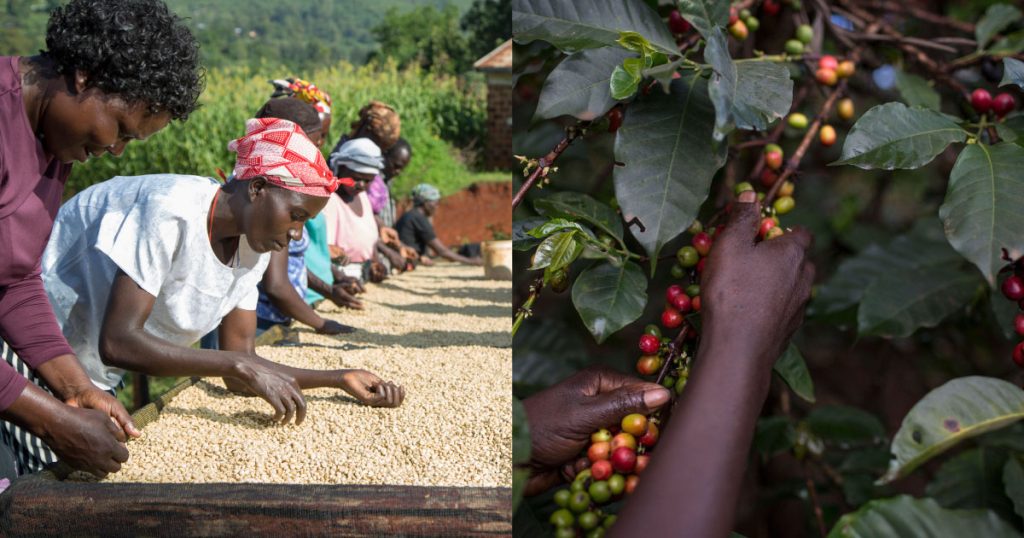Kenya is renowned globally for its high-quality coffee and tea, two of its most significant agricultural exports. However, the sector faces challenges that hinder its potential. To benefit farmers, increase trade, and improve the socio-economic welfare of the nation, a multi-faceted approach is essential. Here are several strategies to invigorate Kenya’s coffee and tea farming sector.
1. Adopting Modern Agricultural Practices
Modernizing farming techniques is crucial for increasing productivity and quality. Farmers should be encouraged to adopt practices such as precision farming, which utilizes data on weather, soil conditions, and crop health to optimize yields. Additionally, integrating organic farming methods can cater to the growing global demand for organic products, thereby fetching higher prices in international markets.
2. Improving Access to Quality Inputs
Access to high-quality seeds, fertilizers, and pest control measures is vital for healthy crops. The government and private sector should collaborate to ensure that these inputs are affordable and accessible. Establishing cooperatives can help farmers purchase inputs in bulk, reducing costs and improving crop quality.

3. Enhancing Training and Extension Services
Providing farmers with continuous education and training is key to adopting new technologies and best practices. Extension services should be strengthened to offer practical, hands-on training in modern farming techniques, crop management, and sustainable practices. Digital platforms can also play a role in disseminating information and offering virtual training sessions.
4. Investing in Research and Development
Investment in agricultural research and development (R&D) can lead to breakthroughs in crop varieties that are more resistant to pests, diseases, and changing climate conditions. Research institutions should work closely with farmers to ensure that innovations are practical and meet their needs.
5. Improving Infrastructure
Good infrastructure is essential for efficient farming and trade. Upgrading rural roads, establishing reliable irrigation systems, and ensuring access to electricity can significantly reduce post-harvest losses and improve the overall productivity of coffee and tea farms.
6. Strengthening Cooperative Societies
Cooperatives play a critical role in pooling resources, accessing markets, and negotiating better prices. Strengthening these societies through capacity-building initiatives can enhance their efficiency and effectiveness. Transparent governance and financial management within cooperatives are essential to gain farmers’ trust and participation.
7. Facilitating Access to Finance
Farmers often face challenges in accessing finance due to stringent lending criteria. Financial institutions should develop tailored products for smallholder farmers, including low-interest loans and flexible repayment schedules. Additionally, microfinance and savings groups can provide farmers with the necessary capital to invest in their farms.

8. Promoting Value Addition
Adding value to raw coffee and tea before export can significantly increase earnings. Establishing local processing facilities for roasting coffee beans and packaging tea can create jobs and boost local economies. Moreover, promoting Kenyan-branded coffee and tea in international markets can create a niche for high-quality products.
9. Enhancing Market Access
Improving market access for farmers through better market information systems and establishing direct links with international buyers can increase profits. Online marketplaces and platforms can connect farmers directly with buyers, eliminating middlemen and ensuring fairer prices.
10. Encouraging Sustainable Practices
Sustainability is key to long-term agricultural success. Encouraging farmers to adopt eco-friendly practices such as agroforestry, water conservation, and organic farming can lead to more resilient farming systems. Certification schemes for sustainable and fair-trade products can also open up new markets and command premium prices.
By implementing these strategies, Kenya can revitalize its coffee and tea farming sectors, ensuring increased productivity, profitability, and socio-economic benefits for farmers and the nation as a whole. A concerted effort from the government, private sector, and international partners is essential to drive this transformation forward.


